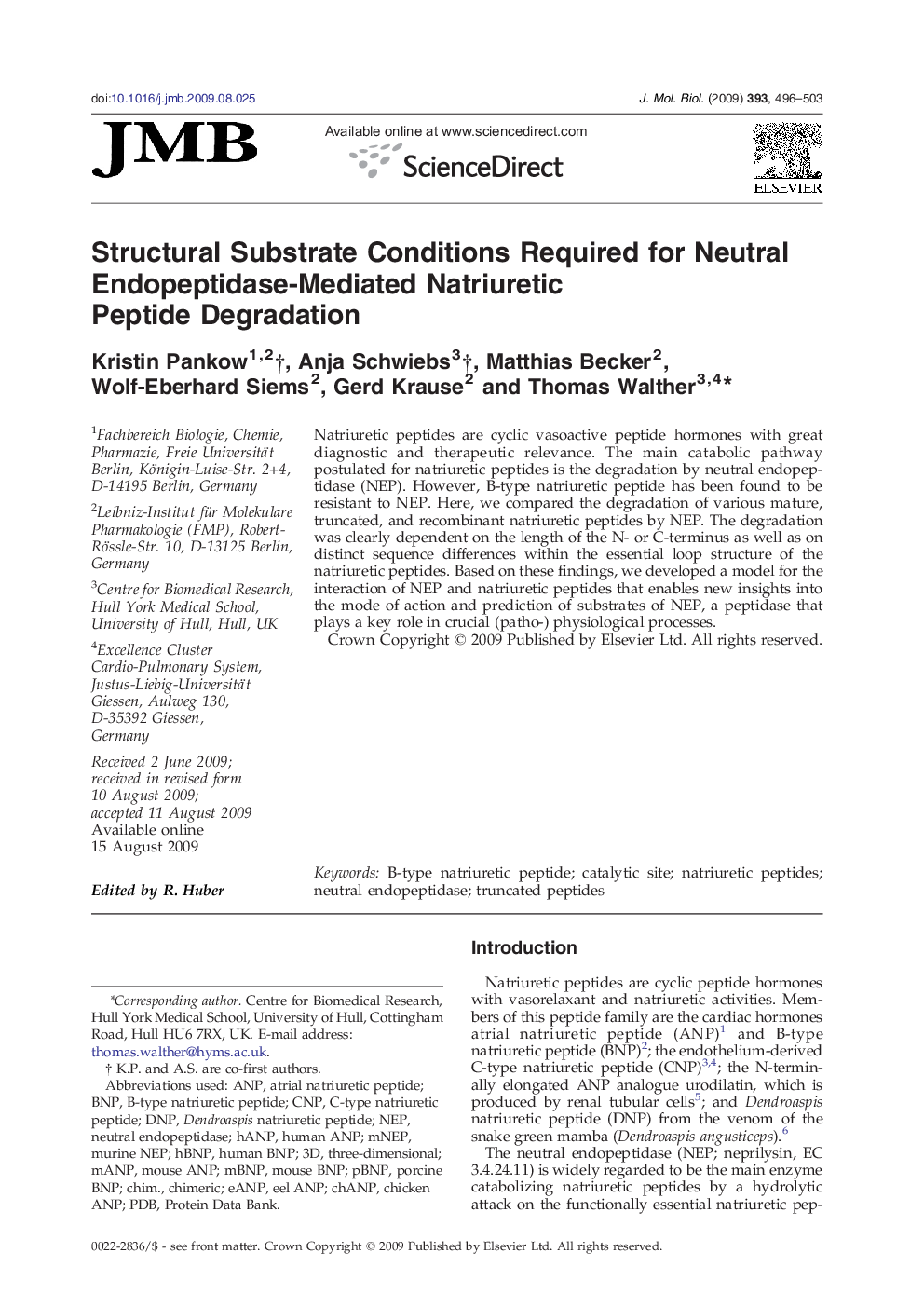| Article ID | Journal | Published Year | Pages | File Type |
|---|---|---|---|---|
| 2186212 | Journal of Molecular Biology | 2009 | 8 Pages |
Natriuretic peptides are cyclic vasoactive peptide hormones with great diagnostic and therapeutic relevance. The main catabolic pathway postulated for natriuretic peptides is the degradation by neutral endopeptidase (NEP). However, B-type natriuretic peptide has been found to be resistant to NEP. Here, we compared the degradation of various mature, truncated, and recombinant natriuretic peptides by NEP. The degradation was clearly dependent on the length of the N- or C-terminus as well as on distinct sequence differences within the essential loop structure of the natriuretic peptides. Based on these findings, we developed a model for the interaction of NEP and natriuretic peptides that enables new insights into the mode of action and prediction of substrates of NEP, a peptidase that plays a key role in crucial (patho-) physiological processes.
